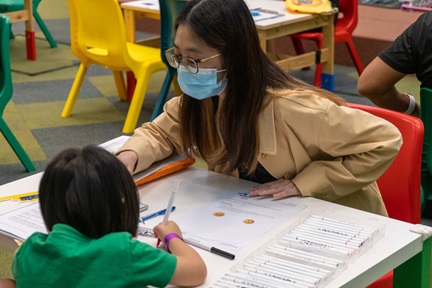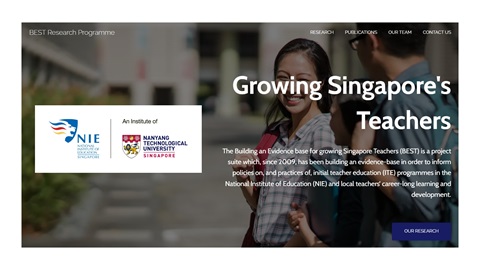Positive Educational Interventions to Improve Student Wellbeing
OER 06/20 GADL - Harnessing Positive Psychology Principles in Fostering Academic Motivation/Engagement and Wellbeing of Low-Progress Learners in Singapore
Project Team
PI: Associate Professor Gregory Arief D Liem, PCHD, NIE
Co-PI: Associate Professor Chong Wan Har, PCHD, NIE
Sub-Project 1 PI: Dr Chue Kah Loong, PCHD, NIE
Sub-Project 2 PI: Associate Professor Chong Wan Har, PCHD, NIE
Sub-Project 3 PI: Associate Professor Gregory Arief D Liem, PCHD, NIE
Sub-Project 4 PI: Assistant Professor Dutt Anuradha Salil Kumar, PCHD, NIE
Sub-Project 5 PI: Dr Yvonne Seng Bee Gek, PCHD, NIE
Collaborators:
Dr Muhammad Nazir Bin Amir, AST, MOE
Mr Tan Cher Chong, AST, MOE
Mr Dennis Kom, SDCD, MOE
Ms Ong Soo Lin, SDCD, MOE
Mr Ang Yu Jian, Pei Hwa Secondary School
Project Description
While “low-progress” learners may thrive despite challenges, many often have lower, less well-defined aspirations and suboptimal motivation and engagement. In performance-driven educational contexts such as Singapore, students, including low-progress learners, experience heightened anxiety. Grounded in Martin Seligman’s PERMA (Positive Emotion, Engagement, Positive Relationships, Meaning, Accomplishments/Achievements) framework of flourishing, this Programmatic Research aims to contribute to efforts in uplifting these students. It comprised five Sub-Projects that set out to: (a) validate a modified PERMA-Profiler and examine the longitudinal trends in adolescents’ wellbeing, (b) investigate the attributes associated with thriving low-progress learners, and (c) evaluate the efficacy of three interventions targeting adolescents’ motivation, engagement, and psychological wellbeing.
Involving close to 7000 adolescents from across 54 Secondary schools in Singapore, the study will conclude in 2025. The findings revealed that:
- while wellbeing declined over the first two years of secondary school, adolescents reported increased optimism, positive emotions and relationships in year three;
- thriving low-progress learners from disadvantaged backgrounds (i.e., “positive deviants”) adopted well-established adaptive behavioral and cognitive strategies positively linked to wellbeing;
- motivational intervention targeting future selves helped adolescents connect their academic possible selves to the education relevance, improving wellbeing;
- test-anxiety intervention based on a multimodal approach (i.e., cognitive, behavioral, and study skill strategies) effectively reduced test anxiety, enhanced test-taking coping skills, and improved wellbeing;
- positive educational intervention may ameliorate declines in certain aspects of wellbeing.
Project Implications
The findings highlighted wellbeing trend among Singapore adolescents, revealed insights into positive deviants’ strategies and showed that wellbeing may be enhanced through classroom interventions.
Key recommendations
- Leverage on thriving peers to provide mentorship and support for low-progress learners through modelling and/or coaching.
- Utilize the Positive Deviance scale developed by the project as a reflective checklist tool for students to determine the extent they have been employing adaptive strategies.
- Emphasize diverse educational pathways and offer clear guidance on pursuing them. Enhance initiatives to help students form and develop their future possible selves and connect school to their goals to improve motivation and engagement.
- Incorporate test anxiety management and test-taking coping skills lessons to help students cope with performance stressors.
- Integrate wellbeing education into everyday curriculum to improve wellbeing.
- Utilize the locally-validated modified PERMA-Profiler to monitor or evaluate the efficacy of initiatives to enhance wellbeing.
Resources
Publications:
Chue, K. L., Yeo, A., Nie, Y., & Chew, L. C. (2024). Modifying the PERMA profiler to assess student well-being. Current Psychology, 43(4), 3749-3760.
SingTeach articles:
Understanding Well-Being to Uplift Low-Progress Learners
Thinking about Future Selves to Improve Learning Outcomes





.tmb-listing.jpg?Culture=en&sfvrsn=b0306905_1)
